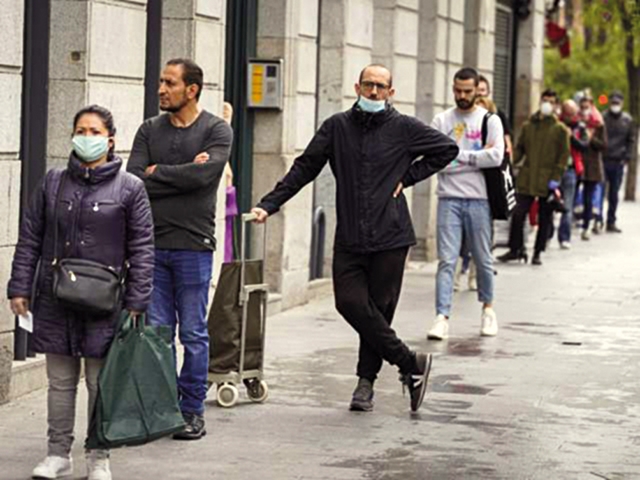The Trying Times of Coronavirus: Europe is Slowly Reviving
The coronavirus has affected every aspect of life we know. But after weeks of restrictions, many European states are slowly beginning to reopen their stores, schools, and construction sites; now pondered whether more damage will be done if the lockdown is kept in place. A need for a plan of revival was acknowledged back in late March, with the European Union’s state leaders calling on the Union’s leadership to create one. On Wednesday, European Commission Chief Ursula von der Leyen set out a roadmap for a gradual lifting of restrictions across the 27-state bloc, but made clear it was not a signal to act immediately. Some European countries had already started to slowly ease the restrictions set in an effort to curb the spread of COVID-19, the virus that as of April 14 had killed 80,548 people in Europe alone.
On Tuesday, Italy, the epicenter of Europe’s coronavirus crisis, had some bookshops and children’s clothing stores reopened, while Spain allowed workers to return to factories and construction sites, despite the high death toll and low demand. Austria agreed to reopen thousands of hardware and home improvement stores, as long as workers and customers agree to wear masks. From May 1, the country will also allow outdoor sports such as tennis, golf and athletics. The Czech government has already made that move, having lifted a ban on communal sports this week.
After the European Commission Chief’s call to lift the bans on society, Denmark moved to let children back to school. Danish children up to age 11 have returned to nurseries and schools. With this, Denmark became the first European country to loosen the restrictions on education imposed to combat COVID-19. Prime Minister Mette Frederiksen welcomed children as they went back to school in Copenhagen.
Elisa Rimpler of the BUPL, the Danish Union of Early Childhood and Youth Educators, told the BBC that the educational institutes that have gone back to functioning have the children washing their hands many times during the day, and as they have no masks, their biggest challenge is keeping a good distance from each other.
German Chancellor Angela Merkel also announced plans to slowly relax restrictions now in place in the country to fight COVID-19.
While the Chancellor said the country "must keep focused and keep going," she noted they "do not have a lot of room for manoeuvre," but recognized that Germany had achieved “fragile intermediate success” through the measures taken. Germany’s plans include loosening social distancing rules from May 3, and reopening schools gradually from May 4. From Monday, small shops are expected to be reopened, though bars, cafes, restaurants, cinemas and music venues will all remain closed until August 31, as large public gatherings will be prohibited until then.
Interestingly, Germany was the last country to issue guidance on wearing face masks in public, and is still not making it mandatory: Chancellor Merkel asked the population to wear masks when in public “to protect other people.”
However, some EU countries still seem wary of reviving their social lives in any aspect. While Belgium has announced it is keeping its restrictions intact at least until May 3, France went on to extend the country’s lockdown measures until May 11.
In Russia, it is society which is asking the government to postpone large gatherings, the BBC reports, and veteran groups have called on President Vladimir Putin to postpone the World War II 75th anniversary victory parade planned for May 9.
Georgia on the other hand is tightening its coronavirus measures. Four of the country’s largest cities are in lockdown due to the fear that the upcoming Easter holiday would otherwise see many citizens traveling between cities and to villages, increasing the risk of the spread of the virus. The government has demanded an extension of the state of emergency until May 10, when it originally was set to end on April 21.
Yet while everything in the country remains shut, including schools, the churches still have their doors open. With the joint decision of the Georgian government and the Patriarchate, churches will not be closed on Easter night throughout the country. However, both sides emphasized that services will be conducted in accordance with the safety standards. At the same time, health and government officials of Georgia continue to call on people to show their “wisdom” and #stayhome to save their own, and others’ lives.
By Nini Dakhundaridze
Image source: Bloomberg












